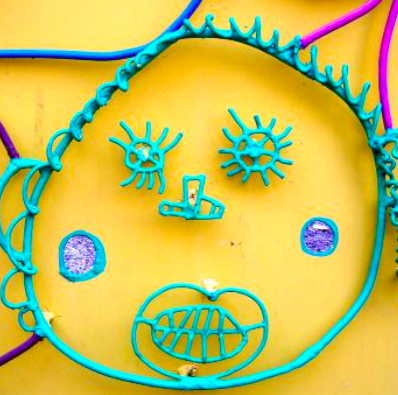english, swahili & the language our lives speak
Mama and Papa, the host couple I'm staying with in Kenya, have lots of visitors that drop by for tea in the late afternoon/early evening. Last week there was a man in his early 60's, wearing a threadbare suit, with impeccable posture and a Bible under his arm, who dropped by.
Mama and I went to the kitchen to brew a pot of tea and prepare a plate of sliced white bread (which is commonly served with tea) for our guest. As we worked to get everything ready, Mama told me that the man was a visiting preacher, here on Rusinga Island for a week of revival meetings before he took a bus back to his village, which was about 4 hours away.
When everything was ready, we brought the tea and the plate of bread into the main room, where the man and Papa were conversing in Swahili.
During my time here, I've learned that whenever there is a new person in the home, it's polite to shake their hand, learn their name, and tell them your name before sitting down.
So I greeted this man, and then he asked me to sit in the chair next to him, which I did. As we sipped tea, he spoke to Mama and Papa in Swahili, and then he turned to me.
"You are from America?" he asked.
I nodded.
"Yes, yes," he said as he took a delicate sip of tea, speaking in a low, reflective tone that would fit an Ivy League professor.
"You know," he said after a few moments. "English is our national language in Kenya."
"Yes!" I said. "I'm glad that so many people here speak English, because I don't speak any Swahili."
And then, thinking he was fluent in English, I launched into questions -- where was he from, where did he live now? did he have a spouse and children? what was his church like?
After the barrage of questions I asked him, he looked totally bewildered, and I realized that the only English he knew was, "English is our national language." But he didn't actually speak any English beyond that.

As I climbed under the mosquito net that night, I laid awake in the dark, thinking about that man.
Professional translators often refer to a person's "heart language." It's the language you learn first and know best. The language you are most familiar with. The words you live with and dream in.
With this man, I realized that even though he claims English as his "official language," it's not his heart language. It's not the language he most commonly and comfortably speaks. In fact, he barely knows it at all.
It struck me deeply because I'm an American, and, especially throughout the ongoing political campaign, lots of people have said that America is a Christian nation that was founded on Christian principles. But, as I've watched the anger and xenophobia and prejudice and lies and chauvinism play out in the campaign, I've realized that while we say that our national language is Christ, while we claim to be followers of the God who IS love, our hearts speak a very different dialect.
Being a citizen of a "Christian" nation doesn't make us any more like Christ than living in a country whose official language is English makes a person fluent in the English language.
Your official language only matters if you actually speak it.
For those of us Americans who claim to be Christians, it's a sobering reminder to engage in some serious introspection. What's the gap between our country's official language, and the language our tongues and hearts and actions actually speak?
When we open our mouths, what language does the world actually hear? Does the world hear radical love and forgiveness? Does the world hear grace? Does the world hear reconciliation and peace? Do our enemies hear us blessing them and praying over them?
If not, there's a big, big problem.
Because if we say that America's official language is "Christian," but don't act or speak anything like Christ, we're just as ineffective as that Kenyan man sitting on the couch sipping tea, telling me his official language is English, while he speaks nothing but Swahili.